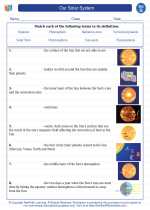What is an Ecosystem?
An ecosystem is a complex network of interactions between living organisms and their environment. It includes both biotic (living) and abiotic (non-living) components.
Components of an Ecosystem
- Producers: These are plants and other organisms that can make their own food through photosynthesis.
- Consumers: These are animals that obtain their energy by consuming other organisms.
- Decomposers: These are organisms that break down dead organisms and organic waste, releasing nutrients back into the environment.
- Abiotic factors: These are non-living elements such as sunlight, water, soil, and air that influence the ecosystem.
Types of Ecosystems
Ecosystems can be terrestrial (land-based) or aquatic (water-based). They can also be categorized based on their climate, such as tropical rainforests, deserts, grasslands, and more.
Food Chains and Food Webs
Within an ecosystem, organisms are connected through feeding relationships. A food chain shows the transfer of energy and nutrients from one organism to another, while a food web illustrates the complex network of interconnected food chains in an ecosystem.
Ecological Succession
Ecological succession is the process by which an ecosystem changes over time. It can be primary succession (on newly formed land) or secondary succession (following a disturbance like a fire or flood).
Human Impact on Ecosystems
Human activities such as deforestation, pollution, and climate change can have significant impacts on ecosystems, leading to loss of biodiversity and disruption of ecological balance.
[Ecosystem] Related Worksheets and Study Guides:
.◂Science Worksheets and Study Guides Seventh Grade. Our Solar System

 Activity Lesson
Activity Lesson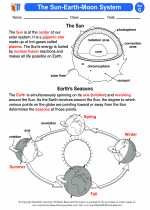
 Activity Lesson
Activity Lesson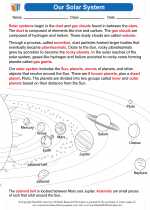
 Worksheet/Answer key
Worksheet/Answer key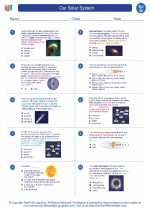
 Worksheet/Answer key
Worksheet/Answer key
 Worksheet/Answer key
Worksheet/Answer key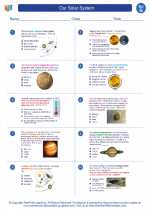
 Worksheet/Answer key
Worksheet/Answer key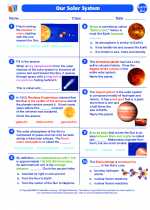
 Vocabulary/Answer key
Vocabulary/Answer key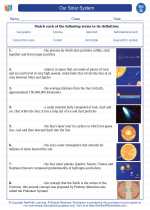
 Vocabulary/Answer key
Vocabulary/Answer key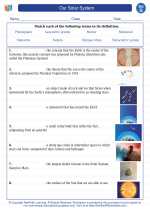
 Vocabulary/Answer key
Vocabulary/Answer key